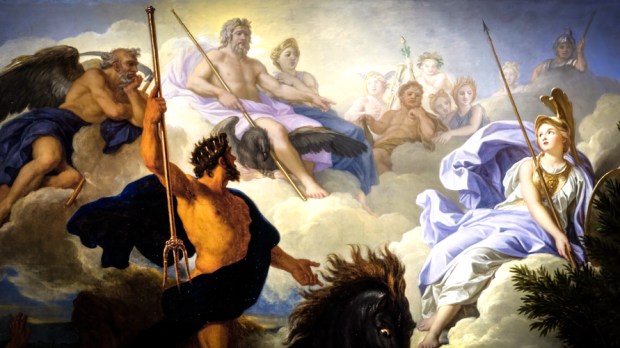Take my yoke upon you and learn from me,for I am meek and humble of heart;and you will find rest for yourselves.—Matthew 11:29
It’s easy for us to get locked into ways of talking about or understanding who Jesus was. But, when we reflect on the mystery of the Incarnation and the truth that Jesus was both human and divine, we quickly realize that our limited vocabulary doesn’t allow us to fully embrace or engage who Jesus, the Christ, truly is.
In the Eastern Church, a tradition developed that associates Jesus with the figure of Lady Wisdom found in Sirach and other parts of the Old Testament. In fact, some early theologians, including Saint Irenaeus and Saint Gregory Nazianzen, even refer to Jesus as the “Wisdom of God.”
In the opening verses of Sirach, we read:
Before all other things wisdom was created; and prudent understanding from eternity. The root of wisdom—to whom has it been revealed? Her subtleties—who knows them? There is but one, wise and truly awesome, seated upon his throne—the Lord. It is he who created her, saw her and measured her. Poured her forth upon all his works, upon every living thing, according to his bounty, lavished her upon those who love him. (1:4-10)
This beautiful presentation of Wisdom offers us a great starting point for reflecting on the Gospel for the 14th Sunday of Ordinary Time (Matthew 11:25-30), in which Jesus takes on this persona, speaking as Lady Wisdom.
Just verses before the text of this Sunday’s Gospel (vv. 11-19), we hear how Jesus and John the Baptist were rejected by the religious leaders, just as “Lady Wisdom” was rejected by those who were thought to be wise (cf. Sirach 15:7-8; Wisdom 10:3; Baruch 3:12). At the end of that section, Jesus identifies himself with Wisdom when he declares, “Wisdom is vindicated by her deeds.” And so, as Barbara Reid, O.P., notes, “Today’s Gospel is the final section of this chapter, where Jesus, like Woman Wisdom, is a sage who reveals mysteries, interprets Torah, and calls disciples” (from Abiding Word, Year A)
To our Western minds, this understanding of Jesus can be uncommon. But this poetic tradition helps us discover new facets of Jesus as the Logos (the “Word”) who “became flesh and lived among us” (cf. John 1:1-5, 14).
Jesus, the Wisdom of God, invites us to take up his yoke. Most of us hear this invitation to “Come” and “take my yoke upon you and learn from me” as a promise of comfort and consolation. After all, he does say, “you will find rest for yourselves. For my yoke is easy, and my burden light.” But, there’s more going on here than just a promise that, through Jesus, we will find ease and contentment.
This invitation is yet another call for us to commit ourselves to a life of discipleship. In this case, Jesus uses an image that very literally invites us to join ourselves to him in carrying out his mission. The consolation we receive is that, like two animals joined by a yoke, we do not have to do this work alone—we have the strength of the Other to rely on as we live out our service.
Not surprisingly, perhaps, the Old Testament also speaks of a yoke—the yoke of Lady Wisdom (Sirach 6:23-33). This imagery becomes especially meaningful for us, today, when we hear these words in light of the Gospel:
Listen, my child, and take my advice; do not refuse my council. Put your feet into her fetters, and your neck under her yoke. Bend your shoulders and carry her and do not be irked at her bonds.
With all your soul draw close to her; and with all your strength keep her ways. Inquire and search, seek and find; when you get hold of her, do not let her go. Thus at last you will find rest in her, and she will become your joy.
Her fetters will be a place of strength; her snare, a robe of spun gold. Her yoke will be a gold ornament; her bonds, a purple cord. You will wear her as a robe of glory, and bear her as a splendid crown.
If you wish, my son, you can be wise; if you apply yourself, you can be shrewd. If you are willing to listen, you can learn; if you pay attention, you can be instructed.
In the end, the Gospel for this Sunday helps us understand another dimension of discipleship and helps us to better understand the one who is our Teacher: Jesus, the Wisdom of God.
How do your images of God and Jesus sometimes limit your understanding who God is? How does the idea of Jesus as the “Wisdom” of God inspire your faith? How does it help you know him more? What does it mean for you to share the yoke of Jesus in your life and ministry?
Words of Wisdom: “The yoke of Christ isn’t easy. In fact, it is impossible to carry on our own. However, the promise of Jesus is sure, the yoke is made easy by God’s grace-filled gift of the Holy Spirit.”—Rev. Steve Pankey

